KYOTO Rising-Star Lectureship Award Winner
2025
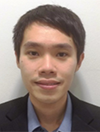 |
Dr. Ming Joo Koh
(Associate Professor, National University of Singapore, Singapore)
|
|---|---|
| Ming Joo (MJ) Koh grew up in Singapore. After obtaining B.Sc. (first class honors) from Nanyang Technological University in 2012, MJ embarked on his graduate studies at Boston College working with Amir Hoveyda. He then carried out postdoctoral studies in the same group. In 2018, MJ started his independent career at the National University of Singapore, where he is currently a Dean’s Chair Professor. The Koh Group’s research focuses on developing sustainable and practical solutions that address critical challenges in chemical synthesis through base metal catalysis and radical cross-coupling chemistry. In particular, he has made contributions in the areas of directing-group-free alkene functionalization, protecting-group-free radical glycosylation and catalytic skeletal editing to simplify organic synthesis. MJ has received several research awards, including the Asian Core Program Lectureship Awards, Innovators Under 35 (TR35) Asia Pacific Award, TCI-SNIC Industry Award in Synthetic Chemistry, Thieme Chemistry Journals Award, C&EN’s Talented 12 Award, Young Scientist Award (SNAS), Young Researcher Award (NUS), Novartis Early Career Award in Chemistry and Mitsui Chemicals Catalysis Science Award for Creative Work. He currently serves on the Advisory Board of Chem, the Early Career Advisory Board of Science of Synthesis, Organic Chemistry Frontiers and Asian Journal of Organic Chemistry, as well as the Editorial Board of Current Opinion in Green and Sustainable Chemistry and Green Synthesis and Catalysis. | |
 |
Dr. Zachary Wickens
(Associate Professor of Chemistry, University of Wisconsin–Madison, U.S.A)
|
| Zachary Wickens received his B.A. from Macalester College in 2010 and his Ph.D. in chemistry from the California Institute of Technology in 2015, where he studied catalyst-controlled Wacker oxidations with Robert H. Grubbs. He then carried out postdoctoral research with Eric N. Jacobsen at Harvard University as an NIH fellow, developing strategies to control reactive ionic intermediates and access chiral building blocks. In 2018, he began his independent career at the University of Wisconsin–Madison, where he is currently an Associate Professor. His group develops strategies to access and control reactive intermediates using light and electricity, enabling the design of diverse new synthetic platforms. His research has led to advances in oxidative alkene functionalization, highly reducing photocatalytic systems, and exploiting formate salts as precursors to carbon dioxide radical anion. Zachary has received several early career awards, including the Sloan Research Fellowship, NSF CAREER Award, Camille Dreyfus Teacher-Scholar Award, Amgen Young Investigator Award, Bristol Myers Squibb Unrestricted Grant, and Eli Lilly Grantee Award. He is also the recipient of several teaching and mentorship awards, including the Chancellor’s Distinguished Teaching Award and the UW–Madison Outstanding Mentor Award. | |
2024
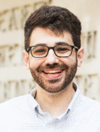 |
Dr. Mark Daniel Levin
(Associate Professor, University of Chicago, USA)
|
|---|---|
| Mark Levin grew up in Cleveland, Ohio. After obtaining B.S. from University of Rochester in 2012, Mark embarked on his graduate studies at the University of California, Berkeley working with F. Dean Toste. He then carried out postdoctoral studies with Eric Jacobsen at Harvard University. In 2019, Mark started his independent career at the University of Chicago, where he is currently an Associate Professor. The Levin Laboratory’s research is focused on methods for single-atom skeletal editing, including reactions that insert, delete, and replace the constituent atoms of the molecular skeleton. To accomplish this, his group employs a wide range of chemical modalities, but with a significant focus on reagent design and photochemistry. Mark has received several early career awards, including the Dream Chemistry Award, Arthur C. Cope Scholar Award, Packard Fellowship, Sloan Fellowship, Amgen Young Investigator Award, Bayer Early Excellence in Science Award, Camille Dreyfus Teacher-Scholar Award, NSF CAREER Award, Bristol Myers Squibb Unrestricted Grant, and FMC New Investigator Award. | |
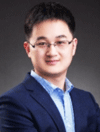 |
Dr. Chang Guo
(Professor, University of Science and Technology of China, China)
|
| Chang Guo was born in Anhui Province, China. Chang received his B.S. and Ph.D. degrees from the University of Science and Technology of China in 2007 and 2013, respectively, under the supervision of Prof. Dr. Liu-Zhu Gong. Following this, he conducted postdoctoral research funded by a Humboldt fellowship at Muenster University, working with Prof. Dr. Frank Glorius. Since 2017, Chang has been conducting independent research at the Hefei National Research Center for Physical Sciences at the Microscale, University of Science and Technology of China. His work is supported by "The Thousand Young Talents Plan" (2018) and the National Natural Science Foundation of China--Outstanding Young Scholars (2022). The Guo Laboratory’s research focuses on asymmetric electrocatalysis and radical reactions. He innovates methodologies for discovering and developing novel asymmetric electrosynthesis, expanding the range and sustainability of synthetic chemistry. Chang is particularly interested in the promotion of novel asymmetric catalysis that highlights the essential role of electrochemistry-driven reactive intermediates in the catalytic process, enabling the formation of stereogenic centers in enantioenriched products. His team created an electrooxidative approach for achieving stereodivergent radical reactions by collaboratively using two distinct chiral catalysts, which convert identical racemic substrates into inherently unique reactive chiral intermediates, guiding enantioselective radical additions and providing access to a complete set of stereoisomeric products. His group has published over 20 original research papers during his independent career, contributing to the selective generation of organic radicals or transition metal intermediates and controlling their subsequent reactivity to generate highly functionalized chemical patterns essential for the total synthesis of natural products and pharmaceuticals. | |
2023
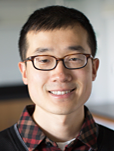 |
Dr. Song Lin
(Tisch University Professor, Cornell University, USA)
|
|---|---|
| Song Lin grew up in Tianjin, China. After obtaining B.S. from Peking University in 2008, Song embarked on his graduate studies at Harvard University working with Eric Jacobsen. He then carried out postdoctoral studies with Chris Chang at UC Berkeley. In 2016, Song started his independent career at Cornell University, where he is currently a Tisch University Professor. The Lin Laboratory’s research lies at the interface of electrochemistry and organic chemistry, with the main objective of using fundamental principles of electrochemistry and radical chemistry to discover new organic transformations and uncover new reaction mechanisms. In particular, he has made original contributions in the areas of electrosynthesis, electrocatalysis, and electrophotocatalysis. Song has received several early career awards, including the Sloan Fellowship, National Fresenius Award, Cottrell Scholar Award, Camille Dreyfus Teacher-Scholar Award, NSF CAREER Award, MIT Technology Review Innovators Under 35, EPA Green Chemistry Challenge, Bristol Myers Squibb Unrestricted Grant, FMC New Investigator Award, Lilly Research Award, Lectureship Award of the Society of Synthetic Organic Chemistry of Japan. He is currently an Associate Editor at Organic Letters and has served on the Editorial Advisory Board of Synlett, ACS Catalysis, and Chemistry–A European Journal and the Scientific Advisory Board of Snapdragon Chemistry. | |
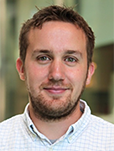 |
Dr. Todd K. Hyster
(Professor, Princeton University, USA)
|
| Todd Hyster is a professor in the Department of Chemistry at Princeton University since July, 2023. He was born in Minnesota, USA, and received his B.S. degree from the University of Minnesota. He obtained his Ph.D. in 2013 with Professor Tomislav Rovis at Colorado State University. During his Ph.D., he interned in the labs of Professor Thomas Ward at the University of Basel as a Marie Curie Fellow. In 2013, he joined Professor Frances Arnold’s lab at Caltech as an NIH postdoctoral fellow. In 2015, he joined the faculty at Princeton University and moved to Cornell University in 2021. He will return to Princeton in the summer of 2023. Todd’s group has pioneered the area of photoenzymatic catalysis, an area of biocatalysis focused on using light to elicit new catalytic functions from naturally occurring enzymes. His group has been mainly focused on developing methods that enable the stereoselective construction of new C–C and C–N bonds. Hyster has published more than 30 papers illustrating the array of remarkable transformations available to cofactor-dependent proteins when irradiated with visible light. Some of his recent accomplishments include a Searle Scholar Award, NSF Career Award, Alfred P. Sloan Research Fellow, Eli Lilly Grantee Award, 20121 Amgen Young Investigator Award, Arthur C. Cope early career scholar award, 2022 Buck-Whitney Award, Mitsui Chemicals Catalysis Science Award for Creative Work, and the 2023 National Fresenius Award. | |
2022
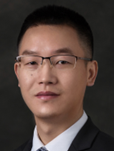 |
Dr. Da-Gang Yu
(Professor of Chemistry, College of Chemistry, Sichuan University, China)
|
|---|---|
| Prof. Dr. Da-Gang Yu was born in Jiangxi Province, China. He received his B.S. from Sichuan University in 2007 and Ph.D. from Peking University in 2012 (with Prof. Dr. Zhang-Jie Shi). Then he carried out postdoctoral research with Humboldt fellowship in Muenster University (with Prof. Dr. Frank Glorius). Since 2015, he has been working independently in College of Chemistry, Sichuan University with support from “The Thousand Young Talents Plan” (2015) and National Natural Science Foundation of China--Outstanding Young Scholars (2018). His research interests mainly focus on organic transformations of CO2. His group has achieved selective radical-type carboxylation and carboxylative cyclizations with CO2, especially with the strategies of “visible-light photoredox-catalyzed successive single electron transfer (SSET) reduction” and “visible-light-driven single-electron activation of CO2 (by using iron/sulfur complex and charge-transfer complex)”. His group has also realized selective carbonylation of C-H bonds with CO2 with the concept of "CO2 = CO + [O]" (using CO2 as a combination of toxic CO along with stoichiometric oxidant), transition-metal-catalyzed asymmetric transformations with CO2 to synthesize chiral bioactive compounds and natural products, as well as the dicarboxylation with CO2 to give dicarboxylic acids as monomers for related functional polyesters. During his independent career, he has published 68 papers and authorized 15 Chinese patents. He received many awards and honors, including Thieme Chemistry Journal Award (2017), Asian Core Program Lectureship Award (to Japan, 2017), Chinese Chemical Society Youth Award (2018), Science China Chemistry Emerging Investigator (2020), Chemical Communications Emerging Investigator (2020) and Chinese Catalytic Rookie Award (2021). He was appointed as the associate editor of Chem. Syn. as well as (young) member of editorial boards of Chin. J. Catal., Sci. China Chem., Asian J. Org Chem. and so on. As a co-guest editor, he has organized 3 special issues on CO2 chemistry for Chin. J. Chem., Green Chem. and Chin. J. Catal.. Moreover, he has also been invited to contribute 4 book chapters on CO2 chemistry for Wiley, RSC and Elsevier. | |
2021
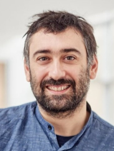 |
Dr. Josep Cornella
(Max-Planck Research Group Leader, Department of Chemistry, Max-Planck-Institut für Kohlenforschung)
|
|---|---|
| Dr. Josep Cornella (Pep) was born in La Bisbal del Penedes, a small town in south Catalunya (Spain) and studied chemistry at the University of Barcelona. In 2008, he moved to the UK to pursue doctoral studies in the group of Prof. Igor Larrosa (UK). After completing his PhD in 2012, he obtained a Marie Curie Fellowship to pursue postdoctoral studies first in the group of Prof. Ruben Martin at the ICIQ (Spain) and subsequently in the group of Prof. Phil S. Baran in The Scripps Research Institute (USA). In spring 2017, he was selected as a Max Planck Research Group Leader to start his independent career in the Department of Organometallic Chemistry at the Max-Planck-Institut für Kohlenforschung (Germany), where he founded and currently leads the Sustainable Catalysis Laboratory. During these initial years, the group of Dr. Cornella has pioneered the development of methodologies based on bismuth, by unlocking its ability to revolve between different oxidation states during catalysis. In addition to fundamental studies on bismuth redox catalysis, Dr. Cornella group has provided a solution to years of sensitive Ni catalysis by providing a family of Ni(0) complexes that can be handled open to air. During his independent career, the group of Dr. Cornella has published 15 original research papers, which span from development of new reactivity to the development of reagents for practical and simple organic synthesis. Recent accomplishments include an ERC Starting Grant 2020, Dozentenpreis des Fonds from the Verband der Chemischen Industrie, Heinz Maier-Leibnitz-Preis 2021 from the Deutsche Forschungsgemeinschaft-BMBF, ORCHEM Young Talent Award 2020, Bayer Early Career Excellence in Science Award 2020 and C&EN Talented 12-2020. | |
2020
 |
Dr. David Sarlah
(Assistant Professor, Department of Chemistry, University of Illinois at Urbana-Champaign)
|
|---|---|
| Dr. David Sarlah is an assistant professor in the Department of Chemistry at the University of Illinois at Urbana-Champaign (UIUC). He was born in Slovenia, where he earned his B.S. degree from the University of Ljubljana. He obtained his Ph.D. in 2011 with Professor K. C. Nicolaou at The Scripps Research Institute, and then joined the laboratory of Professor Erick M. Carriera at ETH Zürich. In 2014, he returned to the United States to start his independent laboratory at UIUC, which explores both the chemical synthesis of biologically active natural products and method development. Namely, his signal achievement is the development of a highly imaginative, photochemical dearomatization of benzenes that allows for a rapid incorporation of oxygen, nitrogen and carbon functionality with exquisite stereocontrol. At UIUC, he has published 14 papers that illustrate this remarkable transformation and the myriad pathways to transform the photocycloadducts into stereochemically rich building blocks. Three elegant total syntheses of Amaryllidaceae alkaloids and a total synthesis of a tetracycline have been described that deliver gram quantities of the products. Recently, he joined the University of Pavia as an adjunct associate professor, initiating a research program based on medicinal chemistry and drug discovery. Some of his recent accomplishments include an NSF Career Award, Alfred P. Sloan Research Fellow, 2019 Grammaticakis-Neumann Award, 2019 BMS Unrestricted Grant Award in Synthetic Chemistry, 2019 Amgen Young Investigator Award, 2019 Eli Lilly Organic Chemistry Award, and 2020 FMC New Investigator Award. | |



